Community Guest Speakers
There are many Indigenous content experts and resource people in our communities. Here are some people who are available as guest speakers, or for TRU classroom presentations. To request one of the following people or another Indigenous guest speaker please email ined@tru.ca.
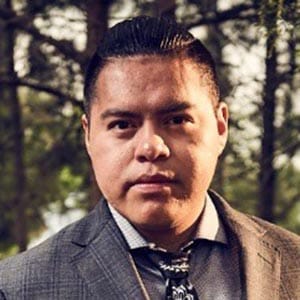
Carl Archie
Carl's BioCarl's Bio
On December 19, 2020, the Canim Lake Band held elections for three Councillors which saw Carl Archie elected. Archie, 31, represents a new generation of Indigenous leaders across Canada. “I put forward a platform of reviving our identity as Secwepemc people and of Reconciliation,” said Archie, “I’m thrilled our community agreed with this vision.”
The Canim Lake Band, with a registered population of 608, had 187 electors participate in the election. The First Nation hosts elections according to a custom election code. Approximately half of the Council is elected every two years. The Councillors serve 4 year terms. The terms for Councillors are staggered to ensure continuity in governance.
Although Archie is new to this Council, he is not new to politics or First Nation issues. Carl has worked globally and nationally advancing Indigenous issues. In July of 2020, he made recommendations to the Governments of Canada and New Zealand on increasing Indigenous trade between the two countries. In 2018, he guided the Secwepemc Nation to obtaining a seat at the table in the Columbia River Treaty talks between the United States and Canada.
In Canada, Carl has served as an elected member of the Board for Thompson Rivers University and the Council for the Advancement of Native Development Officers. He has advised First Nations from coast to coast on Business and Economic Development.
“Tsq’escen’ has a legend about a young man who travelled the world and came home to help his community,” Archie said, “I was inspired by this and other Secwepemc legends. I was also inspired by my Indigenous friends across Canada who are also young professionals and working to revive their languages and cultures.”
Archie also credits his family and the Canim Lake Band for investing so much into him. The Canim Lake Band paid for his Bachelor of Business Administration in Economics, for example. A fluent Secwepemctsin speaker, Archie adds, “They also provided me with a lifetime of opportunities, from 4-H to Hockey. I came home to pay it forward.”
A Treaty negotiator for the Canim Lake Band, part of Carl’s platform is to host a Secwepemctsin naming ceremony for Band members and advance reconciliation in the region by reaching out to local organizations such as the District of 100 Mile House to work together.
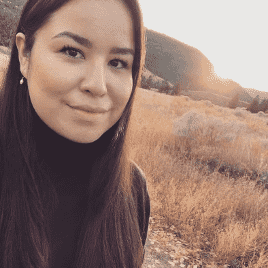
Cara Basil
Cara’s Bio
Cara Basil is a member of the Secwépemc Nation and grew up in Bonaparte where she served her community as an elected councillor from the age of 22. With a passion to drive change for First Nations, Cara has extensive experience in community planning, education and health. Cara holds a Bachelor of Arts in Sociology and Aboriginal Studies from Thompson Rivers University and is a Master of Arts candidate at UBC Okanagan where her research is focused on enhancing health care and specifically palliative care in First Nations communities.
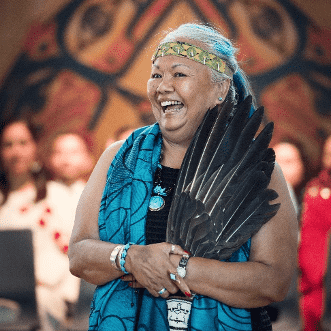
Dorothy Christian
Dorothy's BioDorothy's Bio
Dorothy Christian Cucw-la7 is a visual storyteller, scholar, writer and editor who is from Splatsin, one of the communities of the Secwepemc Nation. She honours her Syilx ancestry. Christian’s graduate studies focus on how cultural knowledge informs Indigenous film production practices. Her PhD dissertation Gathering Knowledge: Indigenous Methodologies of Land/Place-Based Visual Storytelling/ Filmmaking and Visual Sovereignty (2017) links land, story, language and cultural protocols. And her MA thesis A Cinema of Sovereignty”: Working in the Cultural Interface to Create a Model for Fourth World Film and Pre-production and Aesthetics (2010) created a theoretical framework for Indigenous film production practice.
Before graduate school, Dorothy segment produced, directed and wrote for the national broadcaster Vision TV where she accumulated over 100 professional production credits. She travelled throughout Turtle Island and into Mexico to carry Indigenous stories back to the Canadian screen culture. Other related areas where Dorothy has served: Board member and Chair of the Ontario Film Review Board (commercial distribution); Initial Organizer for “Beyond Survival: The Waking Dreamer Ends The Silence”, an interdisciplinary gathering of international Indigenous artists; Executive Director, Film Festival Director and Office Manager of Indigenous Media Arts Group (non-profit).
Cucw-la7 continues to be involved in the Indigenous Screen Culture in Canada. Dorothy is a Board Member of the Indigenous Screen Office that is located on the lands of the Dish With One Spoon Treaty (Toronto, Ontario). She curated programs for the 2018 and 2019 ImagineNative Film Festivals that reflected “Voices from the Western Regions of Turtle Island” and honoured the work of Hopi filmmaker Victor Masayesva, Jr. by programming a retrospective of his work.
Publications include: “Talking In/Talking Out”: Indigenous Knowledge, Filmmaking, and the (De)colonizing Poetics of Visual Sovereignty – A Conversation With Dr. Dorothy Christian” in Special Issue: The (De)colonial Pedagogical Possibilities of Film and Film Festivals”. Guest edited by Sonia Medel and Andre’ Elias Mazawi. Postcolonial Directions in Education, Vol. 8, Issue 2, 2019.; “Indigenous Visual storywork for Indigenous Film Aesthetics” in Decolonizing Research: Indigenous Storywork as Methodology (2019), J. Archibald, J. Lee-Morgan & J. DeSantolo (editors); Co-editor of Downstream: Reimagining Water (2017); co-authored Chapter “Unmapping Watershed Mind” in Thinking With Water (2013); Chapter “Reconciling With the People and the Land” in Cultivating Canada: Reconciliation Through the Lens of Cultural Diversity (2011); Co-authored chapter “History of a Friendship” in Alliances: Re/Envisioning Indigenous and non-Indigenous Relationships (2010).
Dorothy is currently the Associate Director, Indigenous Initiatives at Simon Fraser University and resides on the unceded lands of her Coast Salish cousins, on what is geo-politically known as Vancouver, BC, Canada. She serves on the Equity, Diversity and Inclusion (EDI) Advisory at SFU. In 2020/2021 academic year, Christian is facilitating webinars through the Centre for Educational Excellence that focus on “The Many Facets of Decolonizing and Indigenizing the Academy”.
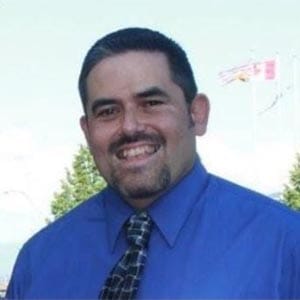
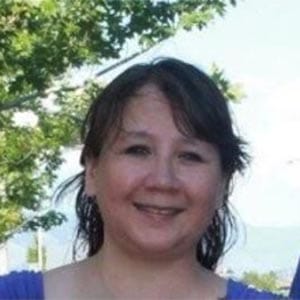
Irv David
Irv's BioIrv's Bio
Irv is a member of the Nuu Chah Nulth Nation (west coast of Vancouver Island) of the Tla O Qui Aht First Nations near Tofino, BC. Irv was raised with his art and culture by his parents with his grandmother playing a big role in his life. He joined the RCMP in 1990 serving all over BC (Hazelton, Nanaimo, Alert Bay, Smithers, back to Hazelton and ending in Kamloops) and retired in 2015.
Irv received Division recognition in Youth, Drug Awareness, Gang Awareness and Recruiting during his career having also trained five new recruits. He continues his work today as an Indigenous Community Liaison Officer for Corrections Canada in Prince George assisting Indigenous offenders on parole. Irv and his wife Nicole also received training in Restorative Justice in recent years. They have three daughters and a granddaughter.
Nicole is from the Gitxsan Nation from the Gitanmaax Band located near Hazelton, BC. She raised their three daughters as a stay-at-home mother and after they left the nest she received training in Restorative Justice, Healing Circles and Advanced Restorative Justice along with Respectful Relationships.
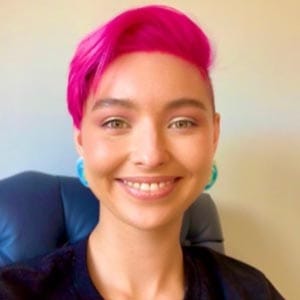
Cicyetkwu Dunstan
Cicyetkwu's BioCicyetkwu's Bio
I am Nlaka’pamux and registered with Lytton First Nations from my grandfather Lyle Dunstan’s side. My mother is Denise Dunstan, my grandmother is Turdine Dunstan and my great grandparents were Cicyetkwu (Mary) and Jacob Anderson. The first time I attended TRU I was enrolled in the sciences. I decided I wasn’t ready for university at that time and left for a few years. I am now returning with more purpose and focus. I have been making time to learn more about my own culture and language recently. I am excited to be an Indigenous mentor this year with Cplul’kw’ten, because I have learnt a lot since I first attended at TRU. I look forward to helping other Indigenous students navigate university learning.
Josh Gottfriedson
Josh's BioJosh's Bio
Joshua August Gottfriedson, MBA
Economic Development Officer for Stk’emlupsemc Enterprises Inc.
A Kamloops young man that has found accomplishments in sport, the arts, academic, and professional realms. He holds an ACE Personal Training Certificate, Dramatic Art’s Program from the Vancouver Academy of Dramatic Arts Graduate, Thompson Rivers University Alumni, and Simon Fraser University Master of Business Administration Graduate.
Raised in his home territory of Tk’emlúps te Secwe̓pemc, he was fortunate to learn traditional practices throughout his life and holds this education in a high regard that is comparable to the academic achievements he has garnered.
He has held positions in the regional, provincial and national stages. He was elected to the Assembly of First Nations from age 18 to 30. He was: the Co-Chair of the National Youth Council, Male Youth Representative for the BCAFN, Board of Director for KAYA and the FNYCBCA.
Shane Gottfriedson
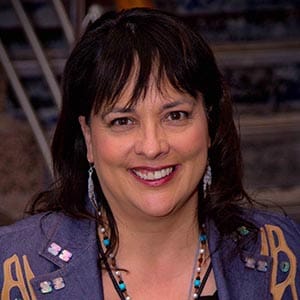
Racelle Kooy
Racelle's BioRacelle’s Bio
Racelle Kooy, also known by the ancestral name Laloya, is a member of Samahquam First Nation with strong family ties to Stswecem’c Xgat’tem. Laloya means “seagull” in her grandmother’s language (referred to by a number of different names including the “Lil’wat language”). She was bestowed with this name at the age of 18 as her Elders knew that she was destined to be a traveler and they wanted to ensure that she would have a name that would anchor her to the land of her Ancestors.
Since receiving her name “Laloya”, she has taken flight to the four corners of the world- developing a deep appreciation for the diversity of humankind and the infinite forms of beauty found in the natural world.
Deeply rooted in her St’atl’imc and Secwepemc cultures and practices, Racelle celebrates a lifetime of opportunities connecting with Indigenous people through gatherings, ceremonies, and meeting in North America and beyond.
Adept at working locally and across Canada as a bilingual co-chair, lead facilitator and community engagement specialist, Racelle steps into the hard places of needed dialogue. She served as the bilingual co-chair for the Assembly of First Nations, and as lead facilitator for a number of federal ministers, including the Minister of Health as well as the Minister of Crown-Indigenous Relations. The first project she managed after graduating with a business degree in tourism from l’Université du Québec à Montreal, was for the Fairmont Hotels in Quebec City. She successfully engaged with all levels of government, private business, religious orders and the local First Nation- all very indicative of the nature of the work she would continue to excel at for the past 20 years. She has brought a unique voice to regional, national and global platforms like the Cannes International Film Festival and the inaugural live broadcast launch of Aboriginal People’s Television Network.
In a festival or workshop setting, Racelle is passionate about helping others find their voice and encouraging them to occupy the space of their calling in the world. She loves to connect with people through stories, teaching, hand drumming and singing, as well as the magic that can transpire through tapping into the creative side through artwork. She finds great joy in instigating a round of belly laughs and “aha” moments of exchanges with others.
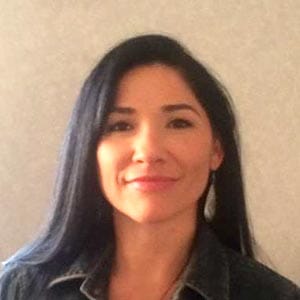
Leslie LeBourdais
Leslie's BioLeslie’s Bio
Leslie is a member of the Pelltiq’t te Secwepemc Nation and is currently the Assistant Manager, Culture and Heritage of the Tk’emlúps te Secwepemc Natural Resources Department. She has a passion for protecting, preserving and promoting her Secwépemc culture. By collaborating with various clients on diverse projects throughout the nation Leslie aspires to use leading edge technology to accurately depict the landscape and all interactions with it. As geographic information systems analyst Leslie works with First Nations, local communities and various levels of government. She has produced multiple GIS solutions for forestry, archaeology, land title, specific claims, First Nations use and occupancy, and biodiversity including web mapping applications. As an Archaeologist, Leslie has conducted various archaeological assessments throughout the province for forestry, mining, construction, oil and gas, hydro and telecommunications developments. She is currently continuing her education at Simon Fraser University in the Heritage Resource Management Master’s Degree Program under the supervision of Dr. George Nicholas.
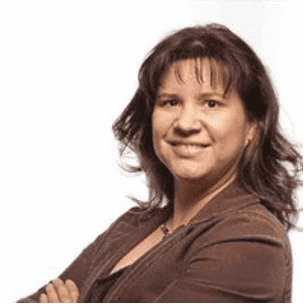
Sunny LeBourdais
Sunny's BioSunny’s Bio
Sunny LeBourdais is a Pelltíq’t te Secwépemc Nation member and the Director of Operations for the Qwelmínte-Secwepemc, a collective united through QS-G2G Letter of Commitment including seven signatories from three historic divisions of the Secwépemc Nation. Sunny was the Director Governance at the Secwepemc Nation Building Initiative and Project Coordinator for the Stk’emlúpsemc te Secwepemc Nation (SSN). Sunny holds an MSc from Simon Fraser University and has managed and coordinated businesses and projects for the Okanagan, Ktunaxa and Secwepemc Nations. She was the project coordinator on the SSN’s Indigenous Impact Assessment Process for the proposed KGHM Ajax Mine near Kamloops, which was successfully completed in 2017.
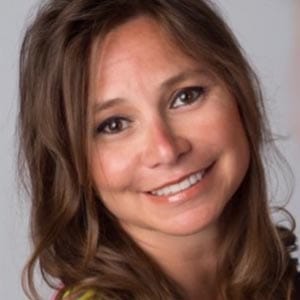
Danielle Levine
Danielle's BioDanielle's Bio
Danielle Levine is Métis and originally from Winnipeg, Manitoba, but she now calls British Columbia’s Lower Mainland home. She is a social entrepreneur, advocate and educational designer who strives to create meaningful learning opportunities through her independent consulting practice.
She is currently working with the Chartered Professional Accountants of British Columbia (CPABC) on increasing the engagement and participation of Indigenous peoples in the 37,000 members in the regulated profession and growing the CPA Financial Literacy program in British Columbia. Danielle is also currently working with clients on strategic planning and custom designed entrepreneurship program for Stó:lō Community Futures.
Her brand of educational program design is grounded in real world application and respect for the adult learner. She has worked with managers and leaders, communities, post-secondaries, and start-ups on topics related to entrepreneurship, business, financial literacy, inclusion, equity and diversity and personal development. Her focus is on customized design that is unique and tailored for the client.
Over the years, Danielle has helped to develop several entrepreneurship accelerator programs including the Entreprenorth program, e@UBC and the Kanuu Indigenous Innovation Society, which is an organization that she founded. She custom designed a food entrepreneurship program for Indigenous hunters and gatherers in Inuvik, NWT that incorporated food sovereignty, entrepreneurial development, and traditional indigenous knowledge.
While working at the Sauder School of Business at UBC, Danielle designed many courses including a full MBA credit for visiting Māori students from the University of Waikato Management School in New Zealand. She also co-designed the first Indigenous topics course that is now offered to all Bachelor of Commerce students at the business school. Danielle’s other accomplishments include a custom leadership program for the Musqueam Indian Band, an innovative mentorship program that matched Indigenous students with UBC alumni, and a course that introduced real estate development in urban settings for Indigenous students. Danielle also created a course to introduce Co-operatives as a viable business model for Indigenous students.
Danielle currently serves on the Board of Directors for the Chief Joe Mathias Aboriginal Scholarship fund, the Leq’á:mel Economic Development Corporation and is a member of the National Indigenous Economic Development Board. She is a member of the advisory committee for the Martin Family Initiative and serves on the Indigenous Curriculum task force and Indigenous peoples day committee for Meadowridge School. Danielle is a former board member of the Vancouver Native Housing Society, Co-operatives First and a founder and former board member of the Fraser River All Nations Aboriginal Society.
Danielle has a Master of Business Administration with a focus on developing and delivering Financial Literacy programming for urban Indigenous communities as well as a certificate in Community Economic Development from Simon Fraser University.
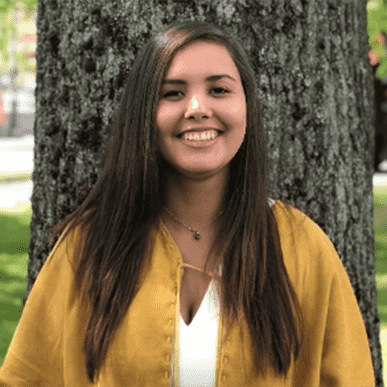
Melpatkwa Matthew
Melpatkwa's BioMelpatkwa's Bio
Weytkp! My name is Melpatkwa Matthew and I am Secwépemc from Cstélen and Simpcw. I am a recent UBC-Vancouver graduate in the Master of Arts in the Geography program. My research specializes in Secwépemc water governance, Secwépemc community research methodologies, and Indigenous geographies. My thesis is titled ‘Secwépemc water governance: re-imagining water relationality.’ Currently, I work on multiple Indigenous-led research projects on education, language revitalization, water and food/land. When I am not working I enjoy travelling, reading, and visiting my nephews and nieces. My goal is to advance Secwépemc research and mobilization across Secwepemcul’ecw.
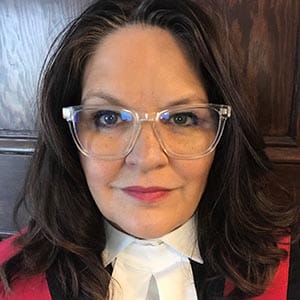
Linda Thomas
Linda's BioLinda's Bio
Judge Linda Thomas was sworn in as a Provincial Court Judge on July 5, 2018. Judge Thomas is assigned to the Northern Region and sits in Fort St John. (which is about 7 hours from the Yukon / BC border). She has recently relocated to Williams Lake.
Linda is of Cree – English - Norwegian ancestry, a member of the Tk’emlúps te Secwépemc (formerly Kamloops Band) through marriage. The Tk’emlúps community has been her home for over 30 years.
Judge Thomas received an LLB from the University of British Columbia in 2000. She has experience working as a sole practitioner and for First Nations government and non-profit organizations. Her law practice focused primarily on child protection and family law, and she also has a background in prison law. She has worked extensively to develop and facilitate legal information workshops with law advocates, family support workers and Indigenous communities.
She led the establishment of the Cknúcwentn - First Nations Court in Kamloops; a provincial sentencing court for aboriginal people. It is one of six such courts operating in the BC Provincial Court.
At the time of her appointment to the Provincial Court, Linda was the Executive Director of Secwépemc Child and Family Services; a delegated aboriginal child welfare agency serving 7 Secwépemc band communities and the Kamloops urban Indigenous community.
In 2016, she was one of 25 selected participants in the national social innovation program; Getting to Maybe, held at the Banff Centre.
She has served as a Board member of the Legal Services Society of BC and member of the Minister’s Advisory Council on Indigenous Women, an advisory council to the BC Ministry of Indigenous Relations and Reconciliation.
In 2014, Linda received the CBA BC Aboriginal Lawyer’s Forum Special Contribution Award, which recognized not only her leadership and commitment in establishing the First Nations court in Kamloops but also her motivation to improve relationships between aboriginal people and the legal system.
Linda is the proud recipient of the 2015 Kamloops YMCA Peace Award which recognized her work in establishing the First Nations court in Kamloops. In 2017, Linda received the Heart of the Grasslands Award from the BC Association of Social Workers for her leadership with the First Nations Court in Kamloops.
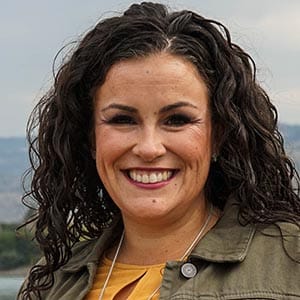
Christine Thompson
Christine's BioChristine's Bio
Weyt-kp,
My name is Christine Thompson and I am member of the Tk’emlúps te Secwepemc. My parents are Brian Tronson and Wendy Hand. My late paternal grandparents are Robert Tronson from the Okanagan and Christine Tronson nee Larue, member of Tk’emlúps te Secwepemc. My maternal grandparents are Shirley and the late Robert Hand who are of European decent.
In 2010, I graduated from Thompson Rivers University (TRU) with a Bachelor of Arts with a major in Sociology. After graduating, I was offered a placement as an intern with the Provincial Government in their Aboriginal Youth Internship Program (AYIP). My year as an Aboriginal youth intern was filled with many opportunities that was both challenging and rewarding. I believe that the overall goal of the internship program is to support youth in their leadership skills and abilities. For many interns and myself included, the program provided various opportunities to grow on an intellectual, personal and cultural level. For example, in my own work with the Voices of Experience (VOE) Panel I was able to provide opportunities to empower Aboriginal youth in care to reclaim their cultural identity. It was through my experience as the Regional Aboriginal Youth Engagement Coordinator that I found myself on my own journey. While I was an intern, I was able to learn valuable skills on proposal writing and was evident as I was also able to secure on-going funding for the VOE Panel, where I continued to work for Ministry of Children and Family Development before I was offered a position in my community.
In 2011, I began working for Tk’emlúps te Secwepemc, as the Aboriginal Justice Worker, in which I worked as a delegated Probation Officer. I also provided assistance to Linda Thomas who was later appointed as a Provincial Court Judge in 2018, in establishing the Cknucwentn First Nations Sentencing Court. Kamloops Cknucwentn First Nations court is a provincial sentencing court that has been operating since 2013. Before the First Nations Court opened in Kamloops, court lists were overrepresented by Indigenous people who came into conflict with the criminal justice system. It was Linda Thomas determination, the support of Tk’emlúps te Secwepemc Chief and Council and the Provincial Court that worked collaboratively to create a First Nations court in Kamloops. In addition, I worked as a liaison on the Community Tripartite Policing Agreement. While I was the Aboriginal Justice Worker for my community, I was involved in numerous councils and committees with the purpose of providing better services to Indigenous people who become conflicted with the criminal justice system. My highlights in my role as the Aboriginal Justice Worker were working closely with Tk’emlúps te Secwepemc leadership and the Aboriginal Community Justice Council which included the Elders who provide recommendations to Cknucwentn court.
In April 2016, I was offered a Project Coordinator position in the Tk’emlúps te Secwepemc, Corporate Department. I coordinated numerous project activities, potential contracts and worked as a liaison with external agencies and organizations. I was responsible for ensuring the overall purpose, goals and objectives of each project assigned were completed within project timelines and budgets. My primary job responsibilities included coordinating Tk’emlúps te Secwepemc efforts with the proposed expansion of Trans Mountain Pipeline. I was involved with a Joint Implementation Committee, alongside Tk’emlúps te Secwepemc Chief and Council and the Chief Executive Officer. While working as the Project Coordinator I worked in collaboration with several different managers and employees from the organization to explore opportunities and form meaningful business partnerships.
I have been working for Correctional Service Canada (CSC) since 2017, as the Indigenous Community Liaison Officer (ICLO) for the Kamloops Parole office. In addition, I have been fortunate to be provided with acting assignments as a Parole Officer. In my position as ICLO, I have developed effective partnerships in the community including remote First Nation communities with a goal of building partnerships with CSC. The work that I have completed has been rewarding, as I have been able to work with organizations to develop partnerships, through which Indigenous offenders are provided with traditional teachings, attend workshops and participate in ceremonies. In addition, I have been able to establish and maintain relationships with agencies who have assisted in providing support to ensure Indigenous men and women returning to community are successful upon their reintegration.
I am grateful to the opportunities that have been available that have shaped my career since graduating from Thompson Rivers University. I am mindful that I have some great mentors in my life who continue to challenge to me. The work that I have been able to do with Provincial and Federal Corrections has been challenging at times, however I am grateful that it has been rewarding.
